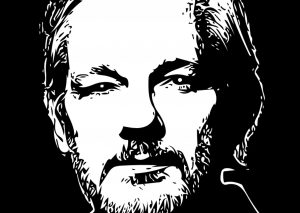UK, USA continue attack of protest rights
After passing the Public Order Bill last year in the UK, which increased the powers of the police to restrict people’s fundamental rights to peaceful protest, the government is looking to restrict protest rights further. The new Criminal Justice Bill is currently being considered by parliament and contains measures designed to clamp down on protesters climbing on national monuments, hiding their face or carrying flares.
In their announcement of the new measures, the Home Office declared that the right to protest is “no longer an excuse for certain public order offences”. Additionally, attorney general Victoria Prentis KC is leading an attempt to outlaw the ‘consent’ defence for climate protesters, which argues that defendants have a lawful excuse for their actions due to their honest belief that those affected by their actions would consent to the damage had they understood the dangers of the climate emergency. This attack on what is one of the last remaining lawful defences available to climate activists has been described by environmental protest group Extinction Rebellion as “concerning”.
“The government would rather curtail our right to protest, and waste valuable court time and public money, than do what everyone agrees is necessary to protect us from the worst climate impacts and cut people’s energy bills,” a spokesperson for the group told Index.
“When political parties keep prioritising narrow private interests ahead of the lives, homes and security of its citizens the solution is to put people in charge through an emergency citizens’ assembly on the climate and nature emergencies.”
This is particularly alarming given the rise in environmental activists facing potential legal action. Hundreds of such campaigners in the UK have received legal threats, leading to claims that states and private companies are using the threat of costly legal action to silence critics.
Michel Forst, the UN special rapporteur on environmental defenders, has previously expressed concerns over the UK’s increasing intolerance of environmental protests, calling the new laws “regressive” and warning of the “chilling effect” they will have on free expression. This statement came in the aftermath of the infamous case of Just Stop Oil campaigners Morgan Trowland and Marcus Decker, who made history last year when they were handed the longest sentences for a peaceful climate protest in living memory. Both have been jailed for more than two and a half years after scaling a bridge on the Dartford Crossing, forcing its closure and causing gridlock for the traffic below.
The current ongoing conflict in the Middle East has increased concerns over protester safety. Since the outbreak of the Israel-Gaza war, weekly marches have taken place in the UK and have become a source of contention in the free expression world. Suella Braverman, for example, stated that waving a Palestinian flag “may not be legitimate” and encouraged a “strong police presence” in response. There have been hundreds of arrests during pro-Palestine protests since the conflict broke out, raising questions over the line between incitement and free speech. In December, nine people were arrested in London after displaying a pro-Palestine banner. Five people were arrested the month before for taking part in a peaceful sit-in at King’s Cross station after refusing to comply with an order to disperse.
This pattern of increasing police powers to clamp down on peaceful protest demonstrates a worrying break from usual democratic principles, which could have serious consequences for free expression in the state.
Anti-protest laws are not just gaining traction in the UK. Similar incidents have occurred in the USA, marking a worrying trend. Earlier this month, freelance journalist Reed Dunlea was arrested while covering pro-Palestine protests in New York. He was officially charged, confusingly, with resisting arrest, but no reason has been given as to why he was being arrested in the first place, particularly as his press pass and media equipment was on full display.
Freelance photographer Stephanie Keith told Index that she saw Dunlea’s arrest in progress as she was covering the protests, but that it wasn’t clear what he was arrested for.
“I was across the street documenting an earlier arrest when I saw a number of NYPD [officers] slamming a fairly large man onto the ground,” she said.
Keith has been covering the recent pro-Palestine protests in the USA and said she has noticed attitudes towards protesters changing in the last few months.
“The NYPD have been much more intolerant of the Palestinian protest in the last two months,” she said. “Protesters used to be able to march in the streets and now if anyone sets foot in the streets, they are arrested.
“The police have a very different attitude towards the protesters now than they did at the end of last year.”
This incident was one of many to have occurred under New York Mayor Eric Adams, a pro-police candidate. During his term, misconduct complaints against the NYPD have risen to their highest levels in more than a decade.
Outside of New York, the police forces of other US cities have also displayed an increasingly hostile attitude towards protesters. Following the racial justice protests of 2020 that broke out after the murder of George Floyd, at least 19 US cities were made to pay settlements totalling more than $80m to protesters who sustained injuries as a result of law enforcement action.
If such a trend continues, the UK and US will have serious questions to answer over their treatment of protesters. One of the most fundamental concepts of any functioning democracy is the right to peacefully protest. The charge sheet of both the UK and the US is not looking good and we must make sure we don’t look the other way.

